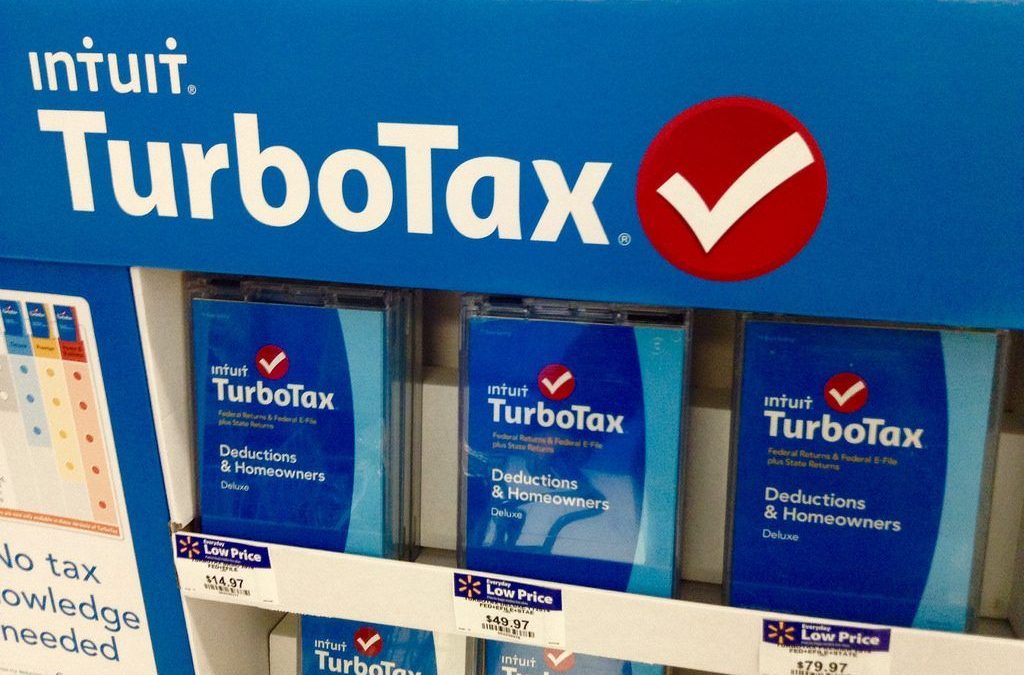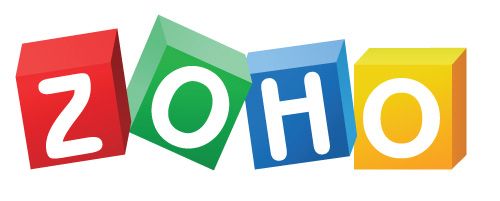
Financial Ratios You Must Know
If you’re running your own business, it’s important to have an understanding of the business’ financial standing. While a bank or financial advisor can evaluate your business for you, the equations they use can easily be done by you so you can check up on the...

Acorns For the Winter: Financial Literacy App
Your personal finances are important. This is, hopefully, a fairly obvious statement. And as obvious a statement as it is, many Americans know very little about their finances. One particular group, millennials, apparently have a very bad understanding of what it...

How To Prepare For An Audit
If you’re a traditional tax paying American adult, then you know what time of year it is. With every new year comes the infamous tax season. The time of year when millions of Americans fill out their W-2 forms and then wait for their tax returns. While it is a fairly...

How To Get Ahead of Tax Season
Tax season is fast approaching once again. For many people, this time of year is incredibly stressful and always sneaks up on them. When April 15th gets close, it suddenly seems like you must fill out all of your tax returns immediately and you have nothing in order....

New Accounting Rules From FASB This Year
The Financial Accounting Standards Board (FASB) released a series of upcoming rules earlier last year that will soon go into effect. Businesses need to be aware that many of these new regulations will be in place sometime in 2017, so it’s important to understand and...

Basic Bookkeeping: Some Beginner’s Advice
Small business owners have great ideas and innovative ways to attract customers to their product or service. While they excel at marketing and selling their product and promoting the business, most of them do not understand the first thing about bookkeeping. It’s...

Top 6 DIY Accounting Software Pt. 2
In the previous article, I mentioned three DIY accounting software platforms that, while may seem similar at first, actually differ quite a bit. And now, to complete the list, here are the final three best DIY accounting applications: Intuit Quickbooks Online Briefly...

Top 6 DIY Accounting Software Pt. 1
As previously mentioned in another post of mine, the accounting industry is, without question, receiving a much needed renaissance in the form of technological progression. With the introduction of advancements like cloud computing and automation, the accounting...

Quick Guide: What is a Fiscal Year? (And How to Use It to Your Advantage)
If you have a small business, you may be deciding whether a fiscal year or a calendar year is the best option for year business. While both have their own advantages, a fiscal year is incredibly beneficial for many organizations. Before deciding, it’s important to...

Tax Guide: Everything You Need to Know About Starting a Business
If you’re considering starting a small business, there’s a lot you’ll need to learn. One of the most important categories to make sure you’re properly educated in is how taxes work for a small business. The IRS has an extensive page that attempts to answer any...
The Official Blog of Kewho Min

Financial Ratios You Must Know
If you’re running your own business, it’s important to have an understanding of the business’ financial standing. While a bank or financial advisor can evaluate your business for you, the equations they use can easily be done by you so you can check up on the financial state of your business and get a regular overview of your financial standing. Using these four ratios to frequently check the financial state of your business will help you improve in any areas and also stay on top of your financial situation.
Quick Ratio / Acid Test Ratio
(Cash + Marketable Securities + Net Accounts Receivable) ÷ Current Liabilities = Quick Ratio
This ratio allows business owners to evaluate whether or not they have enough money to cover their liabilities, such as loans, taxes, debts, and payroll. The higher your ratio is, the better, because it means that you’ll be able to invest more cash back into your business. If you have a ratio less than 1.0, it’s important to focus on paying off your debts before spending money on the business and putting yourself into more debt.
Cash Flow to Debt Ratio
(Net Income + Depreciation) ÷ Total Debt = Cash Flow to Debt Ratio
If you feel you’re having cash flow problems, this ratio could help you see if debt is harming your cash flow. Small businesses often fail due to too little cash flow, so it’s valuable to stay on top of this issue by regularly checking the ratio.
Net Profit Margin
(Total Revenue – Total Expenses) ÷ Total Revenue = Net Profit Margin
This ratio allows you to clearly see how much of a profit you’ve turned with your business. If you notice your net profit getting smaller, you should tighten your budget and focus on increasing that margin. If you’re scaling your business, this decrease is normal, but if there is some other reason your profit lowers, look into it immediately and see how to correct it.
Gross Profit on Net Sales
(Net Sales – Cost of Goods Sold) ÷ Net Sales = Gross Profit on Net Sales
Using this ratio lets you determine how much of a profit you’re making on your sales and whether services can be marked up or down. If your gross profit isn’t as high as you anticipated, you might be under-pricing your items and you should consider raising them. Regularly checking this ratio allows you to catch any issues because it can take a while to correct not making enough on sales. By constantly checking up on your gross profit on net sales ratio, you can fix issues sooner rather than later.
Check out the original article from Due Payments Blog that offers more information about each ratio.

Acorns For the Winter: Financial Literacy App
Your personal finances are important. This is, hopefully, a fairly obvious statement. And as obvious a statement as it is, many Americans know very little about their finances. One particular group, millennials, apparently have a very bad understanding of what it means to budget money. And in the 21st century, the best way to reach millennials is through the technology that they seem to use every waking moment of their lives. One startup, Acorns, is looking to help the millennial generation understand their finances in a big way.
Formed in 2012 by Jeff and Walter Cruttenden, Acorns is a micro investment financing application that makes investing incredibly simple. Users add their credit card to the account, spend money like they normally would, and Acorns will take any spare change and invest it into worthwhile stocks. It is an ingenious idea that is being called the way to invest for millennials. And with over 1.3 million accounts, Acorns is becoming extremely popular.
Another large portion of Acorns’ mission is teaching financial literacy. According to a report from Acorns themselves, after conducting a survey of almost 2,000 millennial respondents, the lack of financial knowledge and budgeting is surprising. Of those surveyed, a whopping 73 percent do not have a budget, and with so many millennials either in debt or severely worried about it (Acorns’ survey shows that debt is the top concern for 40 percent of millennials), they must be educated on how to effectively manage a budget, as well as other personal finance aspects.
This is where Acorns’ goal for teaching financial literacy steps in. The investment company just recently launched a separate service titled Grow in which users can learn a bit more about personal finance techniques. The service, which is available through the main Acorns application, publishes content on financial literacy ranging anywhere from interviews with successful celebrities and financial gurus to in-depth “how-tos” on budgeting, taxes, investing, etc. Acorn CEO Noah Kerner, when asked about the results of the survey, was very adamant about the need for financial literacy, stating, “These numbers are staggering. I don’t accept that our schools think it’s okay to teach about sex but not money. We won’t sleep until we change the problem.”
Acorns is trying to change the way investing is done and taught. As the company continues to grow, hopefully they can reach their goal and improve financial literacy in millennials.

How To Prepare For An Audit
If you’re a traditional tax paying American adult, then you know what time of year it is. With every new year comes the infamous tax season. The time of year when millions of Americans fill out their W-2 forms and then wait for their tax returns. While it is a fairly standard and straightforward process, unfortunately, as with any other service or industry, there can be the occasional hiccup. And in the world of the Internal Revenue Service (IRS), a hiccup typically leads to an audit. Sometimes these are accidents either on your part or theirs, such as mathematical errors, and can usually be solved with a few letters containing relevant information sent to the agency. Other times, it is not as simple. And in those situations, the IRS wants to conduct a full audit. But don’t panic. Here are a few ways you can prepare for an audit.
Hire a Professional
One of the biggest ways that taxpayers being audited can make matters worse for themselves is by handling the situation alone. While many believe that they are, in fact, alone in a situation such as this, they are very wrong. There are tax professionals out there that are equipped to handle audits. If a taxpayer attends the audit themselves, they could accidentally reveal unimportant information, which could potentially lead to more headaches. Enrolled agents, tax attorneys and CPAs are all able to represent you at an audit. Unless you are intimately familiar with tax law, never assume that you can represent yourself!
Record Keeping Is Key
Do you use a calendar for your daily tasks? Do you use a planner, annotated with dozens of sticky notes or a virtual calendar through the Google suite to map out your every day? If so, you may want to apply that same ethic and time management style to your records. Keeping primary and secondary records is crucial. Primary records would be any receipts or bills, while mileage logs or spreadsheets would be considered secondary. Knowing exactly which record you need, and where it is, can make the audit a breeze.
Study, Study, Study
This may seem like a no-brainer, but actually do some research on what the audit experience is like. If you can get a good idea of what to expect at the audit, then there is a big chance that some of your fears or nervousness will simply disappear. A good way to prepare yourself for an audit is to ask around. Ask friends, coworkers or family members if they have gone through an audit before. If they have, they can give you some idea of what will happen. The best way to prepare, however, is to study the actual guide that the IRS gives its auditors. These guides are typically posted online and can give you some tremendous insight into what they auditors will be asking, which can definitely ease the anxiety.
While there are many other ways to prepare for an audit, these are just a few handy tips and rules of thumb. If you are interested in learning more about how to prepare for an audit, visit Bankrate.com.

How To Get Ahead of Tax Season
Tax season is fast approaching once again. For many people, this time of year is incredibly stressful and always sneaks up on them. When April 15th gets close, it suddenly seems like you must fill out all of your tax returns immediately and you have nothing in order. Instead of waiting until the last moment to get your documents together, follow these tips to prepare yourself for tax season, so you have much less stress to deal with and will be infinitely more organized.
Have all the right identifications
If you use an accountant, it’s vital that they have your social security identification number, along with all the other ID numbers that are necessary for your taxes. If you and a spouse file jointly, you’ll need to include his or her social security number as well, and also those of any dependents, whether they’re children, family members, or adults living in your household. If you don’t follow these guidelines and provide these numbers, you may not receive as large a deduction as you would have otherwise or it may take an excessive amount of time to get your tax return.
Pay attention to donations
An easy way to get tax deductions is by keeping track of all the donations you’ve made throughout the year. Keep any tangible proof that you donated, such as letters of gratitude or receipts you receive when you drop items off at charity stores. If you aren’t provided with any evidence, ask whoever runs the charity or donation center if you could have a slip of paper stating what and how much you donated, so you can use it in case the validity of your claims is ever questioned.
Know your other assets
The IRS wants information on all of your assets, not only how much your income is. If you have a vacation home, retirement fund, or are saving for your child’s time in college, it’s important to disclose this information because the IRS charges according to your income. If this information is falsely represented, it could lead to massive fines and complications.
Keep accurate files
Keeping accurate files is essentially the secret to making tax season go smoothly. By keeping all of the pertinent information in one location and carefully filing and labelling it, once you finally begin filling out your tax forms, you won’t have to search for the information you need to provide. Keep copies of the tax forms you usually use and fill your papers out as soon as you can.
Do it early!
The IRS begins accepting tax returns around the middle of January. The earlier you can get your information in, the better. The sooner that the IRS has your tax information, the more quickly they’ll be able to get your tax refund. You’ll also feel less stressed about filing taxes if you start and know that you have two or three months ahead before they’re actually due to the government.

New Accounting Rules From FASB This Year
The Financial Accounting Standards Board (FASB) released a series of upcoming rules earlier last year that will soon go into effect. Businesses need to be aware that many of these new regulations will be in place sometime in 2017, so it’s important to understand and prepare for the changes that will occur. Some of these changes impact life insurance and hedge accounting, among other accounting related areas.
Long-term projects and feedback
A few months ago, the FASB invited companies to contribute feedback about any new projects they felt that the FASB should take on, mainly centered around examining current rules and regulations that may need to be updated in the upcoming years. They also cautioned interested parties to realize that these projects may take 8-10 years to review and finish. The FASB later held a roundtable discussion to determine what areas were the most important to focus on.
Financial reporting disclosures
A main goal of the FASB is to further improve financial reporting disclosures. Russell Golden, the chairman of the FASB says that “depending on the feedback we received, we will then be moving forward to complete all of those phases of the disclosure framework project in 2017 and 2018.” These updates may lead to required disclosures on pensions, income taxes, and other financial matters.
Simplified rules
Though many new rules and regulations are being implemented, the FASB wants to create simplified rules that make the requirements for certain tasks, like when the government hires a private company to run a government-owned facility, more clear and specific so there is no confusion over how to handle different issues. These rules are being changed in an effort to provide clarity for certain issues, but the need regulations are more narrow than they once were.
FASB assistance
Finally, the FASB encourages even more feedback on their overall work and how they can improve various areas. They also offer help to some companies trying to implement these new regulations. The many changes that the FASB is working on “represent the most extensive overhaul in decades in U.S. financial reporting, and will have widespread impacts that vary across sectors.” It’s important for businesses to understand these new rules and also prepare for the extreme changes that will result from them.

Basic Bookkeeping: Some Beginner’s Advice
Small business owners have great ideas and innovative ways to attract customers to their product or service. While they excel at marketing and selling their product and promoting the business, most of them do not understand the first thing about bookkeeping. It’s important that the owner understands the intricacies and basic information about bookkeeping for their business, even if someone else manages the books, in case a financial emergency ever arises. Here is some very basic information you can use for your small business.
Cash accounts
If your business uses cash for any transactions (and most businesses do to some degree), then, obviously, it’s vital that you carefully keep track of it. Because your books will be the only easily accessible record of cash transactions, you’ll need to stay on top of keeping these accounts organized. If cash isn’t monitored, the business could end up losing a lot of money and you might not notice until it is too late.
Inventory
When you have product waiting to be sold, it’s worth the money you paid for it and what its sale value will be. It’s important to keep an up-to-date account of the inventory you have and consistently update your records so you know what needs to be restocked and what’s selling and what isn’t. It’s also necessary to do a frequent tangible check of the inventory, to make sure the numbers match what’s actually being stored.
Accounts receivable and payable
These are pretty straightforward: accounts receivable are what clients and customers owe you if you use a payment plan, while accounts payable are what you owe to other people. These are important categories to keep track of, so you know how much money is supposed to come in and out of the business and you can make sure you send and pay bills on time. Nothing is worse than an angry customer who hasn’t been paid
Payroll expenses
Keeping track of how much payroll and employee benefits cost will help you manage your expenses much better. A large percentage of a company’s profit often goes to payroll, so it’s vital you know how much money is leaving the company. By monitoring payroll, you’ll know whether or not you can afford to hire new employees, and grow your business.
Frequently evaluate
Finally, if you’re serious about keeping up with bookkeeping, you should frequently evaluate the books. At the end of every quarter, make sure everything is in order and there are no missing pieces of information. Once you have your accounts in order, you’ll feel more at ease and ready to enhance your business.
While this may all seem a bit daunting or even intimidating, there are dozens of applications available to help you manage your business accounts. For an in-depth look at some of the best applications available, click here!

Top 6 DIY Accounting Software Pt. 2
In the previous article, I mentioned three DIY accounting software platforms that, while may seem similar at first, actually differ quite a bit. And now, to complete the list, here are the final three best DIY accounting applications:
Intuit Quickbooks Online
Briefly mentioned in the first part of this list, Intuit’s Quickbooks is quite possibly the most popular DIY accounting platform available. Like many other applications on this list, Quickbooks handles the standard fare for what is to be expected from a self-service accounting application. For example, the software allows users to track their expenses (including a useful function that allows users to take a photo of their receipts and store them for later), download bank and credit card transactions in an effort to prepare for tax season, send invoices in –as their website claims– 1 minute, and even check your profit and loss reports quickly and efficiently.
The app works on a tier system (Simple Start, Essentials and Plus), with each tier adding more features for more money. Boasting a whopping 4.8 million users worldwide, Quickbooks has the branding power behind it to reach a wider audience than its competitors. The application also features integration with popular online payment applications, like PayPal and Shopify.
GoDaddy Bookkeeping
Using a tier-based system similar to that of Quickbooks, GoDaddy Bookkeeping is a DIY accounting platform with a large focus on simplicity. While most are familiar with GoDaddy as a domain hosting site, the company has ventured into the accounting industry with its software. While the other applications on this list are quite simple, Bookkeeping’s entire campaign is focused on its simplicity and ease-of-use for the everyday person. GoDaddy Bookkeeping’s website describes the software as, “designed for people who don’t have accounting expertise.” GoDaddy believes this gives them an edge over the competition. And with an already established name like GoDaddy, they have been able to gain a large number of members. The suite includes many of the same features offered by the other platforms, including: bookkeeping, invoicing and tax assistance. The platform also pushes heavily on its security (which is always comforting when dealing with large sums of money), claiming that it uses the same security as most banks, with 256-bit data encryption and servers guarded by tight security.
AccountEdge Pro
With its sleek user interface and robust list of features, AccountEdge Pro, from Acclivity is definitely a viable option for those looking for accounting software. Offering a desktop application for both Mac and PC users, AccountEdge Pro features payroll processing, billing rate reports, employee mileage logs and a wealth of other features. The company is even planning ahead by promising brand new and exciting features for next year such as: UPS Shipping Integration, robust emailing, customer credit rates and Cash Flow reports. Tack on the added bonus of a cloud computing service (AccountEdge Connect) and a mobile application that allow users to gain access to vital information from virtually anywhere, and AccountEdge Pro is one of the most comprehensive suites on this list that is still growing and shows no signs of stopping. There is no wonder why it is preferred by over 100,000 small businesses around the globe.
Hopefully this list helps those of you looking for the right software to use find the perfect match. And although there are several other accounting applications out there, these are the ones that stand out from the rest.

Top 6 DIY Accounting Software Pt. 1
As previously mentioned in another post of mine, the accounting industry is, without question, receiving a much needed renaissance in the form of technological progression. With the introduction of advancements like cloud computing and automation, the accounting industry is starting to enter the 21st century. One of the most useful innovations to enter the industry is accounting software. This do it yourself (DIY) approach to accounting allows users to take control of their accounts, saving a great deal of money on hiring an accountant. While this software does hurt traditional accountants, it has undoubtedly changed the face of the industry.
As with all new ventures, companies and their developers have realized the potential that the DIY accounting software market has to offer, flooding the market with their own version, swearing to be better than their competitors. But which ones truly are the best?
Here is a list, in no particular order, of the top six DIY accounting applications on the market today.
Freshbooks
Founded in 2003, Freshbooks is a web based accounting application intended for small businesses. In its relatively short lifespan, the company has managed to build quite the name for itself, boasting over 10 million users who have reportedly saved over 192 hours annually on account management. However, the small company’s largest achievement would have to be its astounding claim of helping process of $60 billion dollars through its software.
The app itself is quite robust, including the ability to process invoices, expenses, track time and even features an integrated cloud sharing system where employees and clients can share files. Freshbooks also allows for the processing of credit cards, and can even produce real time statistics on your finances. One of its most appealing features is its virtually non-existent footprint. As a web based program, Freshbooks does not actually take up any space on your computer, and can also be used on your mobile phone or tablet. This is a great application for the truly mobile small business owner.
Xero
Even newer than Freshbooks, Xero was founded in New Zealand in 2006. Another online based program, Xero may not have the same number of clients using the software (well over 800 thousand), but it may offer a much more comprehensive program. Xero offers extensive services for small businesses. Features include: invoicing, inventory, payroll, bank reconciliation, expense claims, file sharing and more. The service even allows for business owners to track their profits over multiple currencies, and, to show its competitive nature, convert their files from Quickbooks, quite possibly the most popular accounting software in the country.
The program also seems to have its eye on the future of technology, not only in the form of cloud storage and mobile compatibility, but in wearable technology as well. Xero recently released its Apple Watch application, allowing users to keep track of their cash flow on their wrists, with a sleek and intuitive design. They have also integrated support for the much talked about 3D Touch feature on the iPhone 6S and iPhone 7.
With an eagerness to compete with the major players, an adaptive strategy and exponential growth, Xero is poised to take over the accounting software market.
Zoho
Primarily an accounting program, Zoho does offer several other services in marketing, communication, IT and even human resources. Focusing solely on Zohos “Books” application, the company has enough to compete with the likes of Xero and Freshbooks. The application offers the same features you would expect from any standard accounting software: invoicing, expense reports, automated banking, inventory tracking, etc. But where Zoho truly differs is its extensive suite of programs, giving both small and large businesses the tools necessary to grow and develop.
Their sales and marketing applications allow companies to communicate directly with not only users, but potential clients in a way that almost no other accounting software can match. The “CRM” application alone integrates email, phone and social media channels in order to communicate with customers as quickly and efficiently as possible. The “Social” app takes that social media aspect even further, allowing business owners to communicate across the most popular social media platforms (Facebook, Twitter, Google+ and recently Instagram), schedule unlimited posts and monitor success across all accounts. The “Sites” application can create and monitor websites and the “Docs” application stores documents and files in the cloud, allowing 24/7 access. Zoho is by far the most comprehensive software on this list, and is almost irresistible to any serious business owner.
In part two, I will finish my list, showcasing some of the world’s most popular accounting software. Stay tuned!

Quick Guide: What is a Fiscal Year? (And How to Use It to Your Advantage)
If you have a small business, you may be deciding whether a fiscal year or a calendar year is the best option for year business. While both have their own advantages, a fiscal year is incredibly beneficial for many organizations. Before deciding, it’s important to have a basic understanding of what a fiscal year is and the advantages it offers to you and your business.
What is it?
A fiscal year is a 12-month period that starts quarterly, on the first day of January, April, July, or October. Organizations use a fiscal year to keep track of their finances and report them to the federal government. The finances that are usually tracked include: revenue, profit margin, and general costs for the organization. It also works as a budget, allowing the organization to easily keep track of all expenses and plan for the following year. The organizations that use a fiscal year to report their finances may be a business, a government, or even a non-profit. A calendar year starts on January 1st and may correspond with a fiscal year (lots of organizations opt to start their fiscal year on January 1st so it matches up with their tax year, which is also when individuals start their fiscal years). This guide shows you examples of a fiscal year using the federal budget, so you have more tangible examples to understand how fiscal years work and how much time they span.
Normally, businesses use the same calendar year as their owners, which means they start the fiscal year on January 1st; the same time everyone begins their tax year. This way, all taxes can be filed at the same time and easily tracked by the owner. Corporations, on the other hand, usually find it most beneficial to have a fiscal year that begins a different quarter than January 1st. Regardless of when an organization commences its fiscal year, you’ll still have to file reports quarterly and stay on top of it.
What are the advantages?
If you run a seasonal business, you might find it most beneficial to start the fiscal year on July or October 1st. Most seasonal businesses are open during the summer, so July 1st is an ideal time to start the fiscal year, because it gives the business a chance to estimate their income for the year and make any necessary adjustments. For seasonal businesses, if they’re open through the winter, the tax year ends in the middle of their season, so they can’t accurately report expenses for a single tax year. It really depends on what works best for your individual seasonal business. Other businesses prefer to start the fiscal year on April 1st, because they’ll be able to shift expenses outside the fiscal year and improve the taxable income of the business. It’s also easier to find an accountant who can devote sufficient time to your business if you’re ending your fiscal year outside the normal calendar year. Accountants are incredibly busy during tax season, so it may be hard to get an appointment or find someone who can give sufficient attention to your company.

Tax Guide: Everything You Need to Know About Starting a Business
If you’re considering starting a small business, there’s a lot you’ll need to learn. One of the most important categories to make sure you’re properly educated in is how taxes work for a small business. The IRS has an extensive page that attempts to answer any questions you may have regarding taxes for a small business, but there are also many other guides out there.
Know what costs are deductible
Some people don’t realize that they can deduct a lot of what they spend for their business. It’s vital that you keep track of all receipts associated with the business, which includes any purchases you make with your own money or with a business credit card. Remember you can write of supplies and equipment, along with necessary costs, such as office space rent. Knowing all of these categories and what falls into them is important because if you report something incorrectly, you may not receive your deduction or money return. It’s also important to keep receipts so you can provide proof of purchase. Understand the basics of income taxes for your small business.
Be aware of self-employment tax
If this business is the first time you’ve been self-employed, you’re likely unfamiliar with this tax. Self-employment tax is paid by people who don’t have employers that tax their paychecks. You’ll have to pay your own tax, plus half of what’s typical for an employer. A way to relieve part of this burden is to remember that you can deduct the employer portion of the tax, which takes some of the strain off of you.
Write-off startup expenses
People who are creating their own small business are often unaware or forget that they can write-off expenses created during the first year of their startup. Many people only begin taking deductibles for their business after it’s been established and is making a profit, but you can actually begin writing off expenses during the startup phase.
Remember quarterly estimated payments
Small business are required to make quarterly estimated tax payments throughout the year, which turns taxes into a year-long occurrence instead of only an annual concern. This fact is why it’s important to stay on top of your spending and what purchases are being made for your business. If you don’t submit at least 90% of your taxes, you may be subject to penalties that can severely impact your tax plan. Luckily, startups are excused from these payments for the first year.
Pick the right legal entity
It’s not common knowledge, but the legal entity you choose can have a huge impact on your tax liability down the road. There are lots of options for you to choose from, such as LLCs, S corporations, and sole proprietorships. All of them have some great benefits, but also drawbacks, so it’s important to do sufficient research in order to determine which one is best for your business.
Investopedia also has a great guide to starting a small business and what information you need to know.
